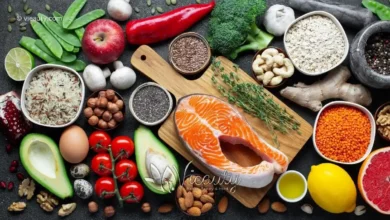Are Flax Seeds a Summer Superfood or Not?
Beat the Heat with Flax Seeds: The Ultimate Summer Superfood
Have you ever wondered if those tiny flax seeds, packed with omega-3s and fiber goodness, are still the shining star of your summer pantry? The debate rages on: are flax seeds truly a superfood sensation when the sun is blazing overhead? As health-conscious individuals seek to optimize their diets, the seasonal conundrum of whether flax seeds maintain their nutritional prowess under the sizzling summer heat is worth exploring.
Table of Contents
- Are Flax Seeds a Summer Superfood or Not?
- Nutritional Value of Flax Seeds
- Consideration for Summer Consumption
- Benefits of Including Flax Seeds in Summer Diet
- Table Of The Nutritional Values In 100g of Flax Seeds
- Flax Seeds Myths and Misconceptions
- Recipes and Tips for Summer Flax Seed Consumption
- Final Tips
- Wrapping Up
- FAQs:
Are Flax Seeds a Summer Superfood or Not?
Venture into the world of flax seeds where their impressive nutritional profile awaits. These versatile seeds boast high levels of heart-friendly omega-3 fatty acids, digestive-friendly fiber content, and potential cancer-fighting lignans. Yet, as we delve deeper into the nuances of flax seed consumption in summertime, questions arise about heat sensitivity, nutrient degradation, and creative ways to savor these nutrient powerhouses under the warm sun.
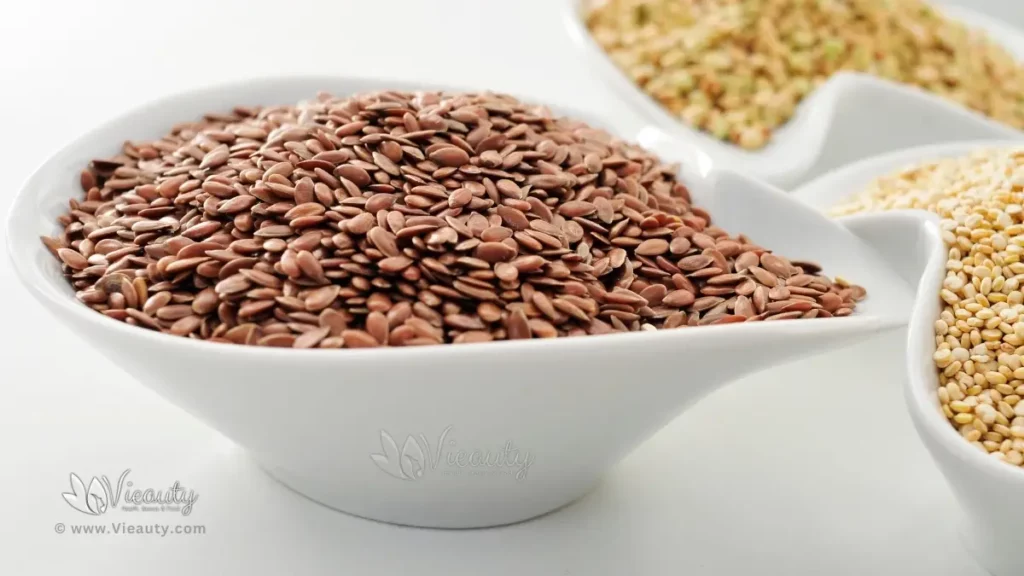
Let’s uncover whether flax seeds can hold their ground as a summer superfood or if they retreat into the shade amidst swirling opinions and tantalizing alternatives. Join us on this journey of discovery towards a more informed and nourished season ahead.
Nutritional Value of Flax Seeds
Flax seeds are often hailed as a superfood due to their impressive nutritional profile. One standout feature is their high omega-3 fatty acids content, particularly alpha-linolenic acid (ALA), which plays a crucial role in supporting heart health. These essential fatty acids have been associated with reduced risk factors for cardiovascular diseases, making flax seeds a valuable addition to a heart-healthy diet. Incorporating flax seeds into meals can be an easy way to boost your intake of these beneficial fats.
In addition to their omega-3 content, flax seeds are rich in dietary fiber. Fiber is essential for digestive health, promoting regular bowel movements and aiding in the prevention of constipation. The fiber in flax seeds also contributes to a feeling of fullness after meals, which can help with weight management by reducing overall food intake. Adding ground flaxseed to smoothies, yogurt, or oatmeal can be a simple yet effective way to increase your fiber intake and support digestive wellness.
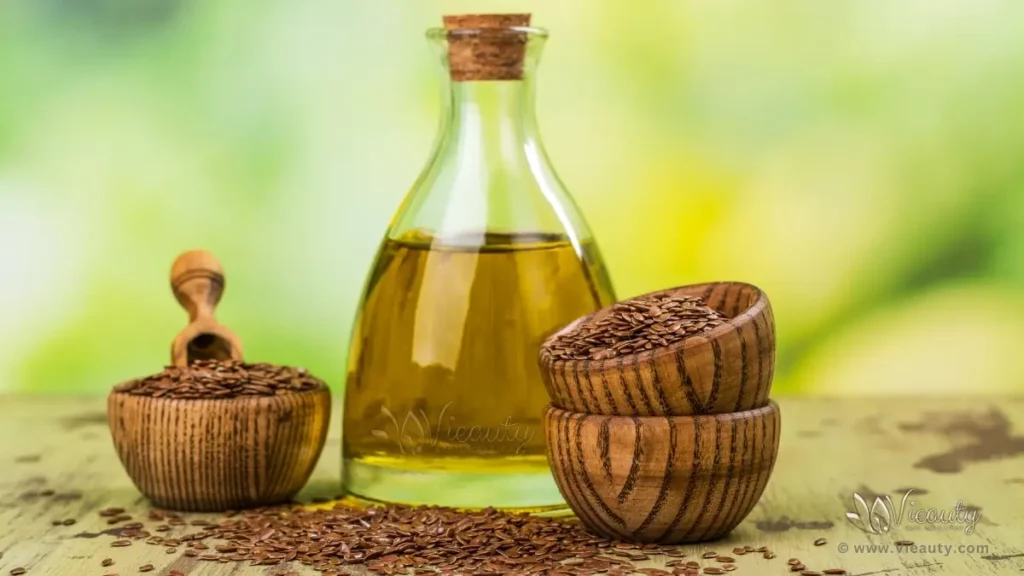
Furthermore, flax seeds contain lignans, plant compounds with antioxidant properties that have garnered attention for their potential cancer-fighting properties. Lignans may help reduce the risk of certain types of cancers, such as breast cancer and prostate cancer. These compounds are thought to exert protective effects through various mechanisms within the body. By including flax seeds in your daily diet, you not only benefit from their fiber and healthy fats but also potentially harness the protective power of lignans against certain types of cancer—a compelling reason to consider these tiny seeds as part of your dietary routine.
Consideration for Summer Consumption
As the temperature rises during summer, it’s essential to factor in how heat can potentially affect the nutrients within flax seeds. Flax seeds contain delicate compounds like omega-3 fatty acids and lignans that could degrade when exposed to heat over long periods. To preserve these valuable nutrients, it’s recommended to store flax seeds in a cool, dark place, such as an airtight container in the refrigerator or freezer. By doing so, you can safeguard the nutritional potency of flax seeds throughout the warmer months.
During summer, when whole flax seeds may not be as practical due to their sensitivity to heat and light exposure, incorporating ground flax seeds into your diet could be a viable alternative. Ground flax seeds are more stable than whole seeds and can be easily added to various dishes without compromising their nutritional value. From sprinkling them on top of yogurt bowls or blending them into smoothies to using them as a binding agent in baking recipes, ground flax seeds offer versatility in maintaining your intake of essential nutrients during summertime.
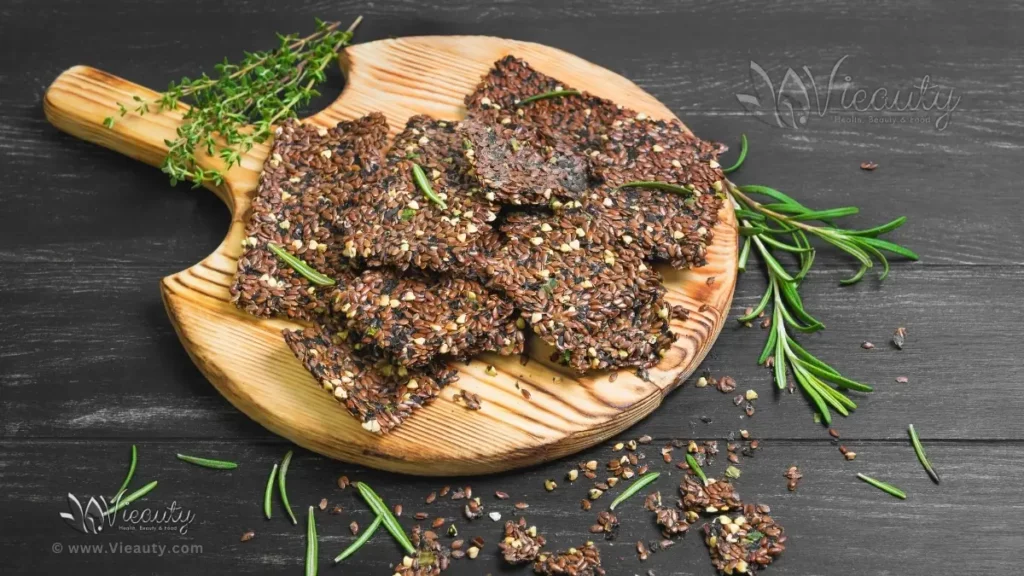
Moreover, exploring creative ways to include flax seeds in your summer meals can add both flavor and nutrition. Consider making a refreshing chia pudding with a mix of ground flaxseeds for added texture and health benefits. Alternatively, you can incorporate ground flaxseed into homemade energy bars as a nutritious on-the-go snack during hot days. By adapting your usage of flax seeds based on their sensitivity to heat and light exposure, you can continue reaping their nutritional advantages while catering to the demands of summer weather.
Benefits of Including Flax Seeds in Summer Diet
During the scorching heat of summer, incorporating flax seeds into your diet can offer more benefits than you might realize. One notable advantage is the potential cooling effect they have on the body. When consumed, flax seeds can help regulate body temperature and provide relief from the sweltering heat, making them an excellent choice for combating the summer heat waves. Additionally, their high fiber content can promote a feeling of fullness without weighing you down, perfect for those hot days when heavy meals may not be appealing.
Another reason to embrace flax seeds in the summer months is their rich omega-3 fatty acid content. These essential fatty acids play a crucial role in reducing inflammation in the body. Inflammation tends to increase during summer due to factors like sun exposure and dehydration, making flax seeds a valuable addition to your diet to combat these effects. By including flax seeds regularly, you can potentially reduce inflammation levels and support overall health during the summer season.
Looking for creative ways to enjoy flax seeds during summertime?
Consider adding ground flaxseed to your favorite smoothie recipes or sprinkling them over refreshing salads. Not only will this enhance the nutritional profile of your meals, but it will also add a delightful crunch and nutty flavor that complements summer dishes perfectly. Whether you blend them into a fruity smoothie for a quick breakfast on-the-go or toss them with fresh greens for a light lunch, flax seeds offer versatility and health benefits that make them a standout ingredient for your summer diet.
Table Of The Nutritional Values In 100g of Flax Seeds
| Nutrient | Amount per 100g of Flax Seeds |
|---|---|
| Calories | 534 kcal |
| Carbohydrates | 28.6 g |
| – Dietary Fiber | 27.3 g |
| – Sugars | 1.2 g |
| Protein | 18.2 g |
| Fat | 42.2 g |
| – Saturated Fat | 3.7 g |
| – Monounsaturated Fat | 12.5 g |
| – Polyunsaturated Fat | 26.0 g |
| Omega-3 Fatty Acids | 16.9 g |
| Omega-6 Fatty Acids | 5.5 g |
| Magnesium | 357 mg |
| Phosphorus | 550 mg |
| Potassium | 575 mg |
| Calcium | 196 mg |
| Iron | 3.7 mg |
| Zinc | 3.5 mg |
| Copper | 1.0 mg |
| Manganese | 3.0 mg |
| Vitamin B1 (Thiamin) | 0.1 mg |
| Vitamin B2 (Riboflavin) | 0.2 mg |
| Vitamin B3 (Niacin) | 1.5 mg |
| Vitamin B6 (Pyridoxine) | 0.1 mg |
| Folate | 63 μg |
| Vitamin E | 1.5 mg |
| Vitamin K | 76 μg |
Note: The nutritional values may vary slightly depending on the source and quality of the flax seeds.
Flax Seeds Myths and Misconceptions
Myths and misconceptions often swirl around the topic of consuming flax seeds during the summertime, leading to confusion among health-conscious individuals.
- One common myth is that the high temperatures of summer can degrade the nutritional value of flax seeds, making them less beneficial. However, it’s essential to debunk this misconception by clarifying that while some heat-sensitive nutrients may be affected by warmer weather, the overall benefits of flax seeds can still outweigh any potential losses. Research shows that even with slight nutrient degradation under heat exposure, flax seeds retain significant amounts of their essential fatty acids and fiber content.
- Another myth surrounding flax seed consumption in summer revolves around its alleged negative effects on digestion during hot weather. Contrary to this belief, the fiber-rich nature of flax seeds can actually support digestive health by promoting regularity and easing bloating—key concerns for many individuals, especially in warm months when hydration and gut health are crucial. Scientific studies have highlighted how the combination of omega-3 fatty acids and fiber in flax seeds contributes to a healthy digestive system, countering any unsubstantiated claims about digestive discomfort from consuming flax seeds in summer.
To provide clarity amid these myths and uncertainties, it’s important to emphasize evidence-based facts about incorporating flax seeds into a summer diet. Studies have shown that despite seasonal variations in storage conditions or meal preparation methods, the nutritional profile of flax seeds remains impressive enough to warrant their inclusion in daily nutrition.
By highlighting these scientific findings and dispelling common myths around summer consumption of flax seeds, individuals can make informed decisions about maximizing the benefits of this superfood during hotter months without compromising their nutritional intake or well-being.
Recipes and Tips for Summer Flax Seed Consumption
Incorporating flax seeds into your summer diet can be both delicious and nutritious. One easy way to enjoy the benefits of flax seeds is by preparing a refreshing flaxseed lemonade. Simply mix freshly squeezed lemon juice with water, a touch of honey or maple syrup for sweetness, and a tablespoon of ground flaxseeds. This drink not only quenches thirst on hot days but also provides a boost of fiber and omega-3 fatty acids.
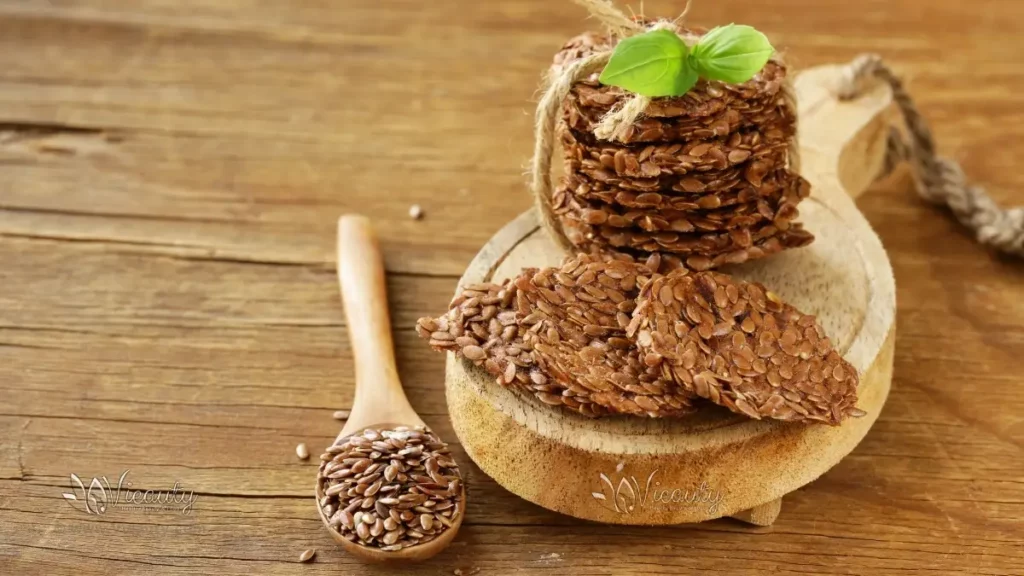
To elevate your breakfast or snack game, consider creating a yogurt parfait with layers of Greek yogurt, fresh berries, and a sprinkle of ground flaxseeds. The creamy texture of the yogurt combined with the crunchy flaxseeds adds a delightful contrast, while the natural sweetness of the berries complements the nutty flavor of the seeds. This simple yet satisfying treat is perfect for fueling your body during warmer months.
Maximize the health benefits of flax seeds by pairing them with seasonal fruits and vegetables in your meals. For example, adding ground flaxseeds to a summer fruit salad not only enhances its nutritional profile with added fiber and healthy fats but also brings a unique texture to the dish. Similarly, incorporating flaxseed oil into homemade salad dressings made with fresh garden produce can offer a flavorful twist while boosting your intake of essential nutrients.
For those looking for creative ways to beat the heat while reaping the benefits of flax seeds, try including pre-soaked ground flaxseeds in frozen treats like popsicles or homemade fruit sorbets. Mixing these nutrient-packed seeds into frozen desserts not only adds crunch but also ensures you’re getting an extra dose of fiber and omega-3s in each cool bite—a guilt-free indulgence that supports both your taste buds and well-being during summertime.
Final Tips
Now that you’ve explored the debate around consuming flax seeds in summer, here are three final tips to help you make the most of this nutrient-packed superfood during the warmer months:
Opt for Whole Flax Seeds: While ground flax seeds are often recommended for better nutrient absorption, opting for whole flax seeds can be beneficial during summer. Whole flax seeds have a longer shelf life and are less prone to oxidation compared to pre-ground options. Consider grinding small portions of whole flax seeds as needed to preserve their freshness and nutritional potency.
Combine with Hydrating Foods: Maximize the benefits of flax seeds by pairing them with hydrating foods like cucumbers, watermelon, or leafy greens. Adding ground flax seeds to a refreshing cucumber salad or blending them into a watermelon smoothie can create a nutritious and hydrating summer meal that supports both your health and hydration needs.
Experiment with No-Cook recipes: Embrace the heat of summer by exploring no-cook recipes that incorporate flax seeds. Overnight oats with chia and flax seeds, chilled chia pudding topped with fresh berries and ground flaxseeds, or even a tropical fruit salsa with a sprinkle of flaxseed can provide a cool and satisfying way to enjoy the benefits of this versatile superfood.
By incorporating these tips into your summer diet, you can enjoy the nutritional advantages of flax seeds while staying refreshed and energized throughout the season. Remember to listen to your body’s needs and preferences when experimenting with different ways to incorporate flax seeds into your meals and snacks during the warmer months.
Wrapping Up
In closing, the debate over whether flax seeds are a summer superfood boils down to individual health goals and preferences. While some may worry about nutrient degradation in the heat, others value the potential cooling effects and anti-inflammatory properties that flax seeds offer during warmer months. Ultimately, it is essential for consumers to consider their personal needs and how they can best incorporate this nutrient-rich seed into their diets effectively.
As summer rolls in, it’s crucial for health-conscious individuals to weigh the benefits of including flax seeds in their diet against any potential drawbacks related to seasonal factors like heat sensitivity. By staying informed about proper storage methods and innovative ways to enjoy flax seeds in summer recipes, anyone can harness the nutritional power of these tiny seeds even in the sweltering heat. With a bit of creativity and planning, incorporating flax seeds into your summer meals can be both delicious and nourishing.
So, whether you choose to sprinkle ground flaxseeds on your morning smoothie bowl or experiment with adding them to refreshing salads, keep in mind that your summertime journey with flax seeds can be as versatile as you desire. By making educated decisions based on your unique health needs and tastes, embracing flax seeds as a part of your summer superfood lineup might just be the nutritious twist your warm-weather menu needs. Remember, adaptability is key when it comes to optimizing your diet with nature’s bounty like flax seeds!
FAQs:
Q: Can I consume whole flax seeds in summer?
A: It’s best to consume ground flaxseeds as they are easier for your body to digest and absorb nutrients from, especially during the warmer months when heat can affect nutrient availability.
Q: Are there any side effects to consuming flax seeds in hot weather?
A: When consumed in moderation, there are generally no severe side effects to eating flax seeds in hot weather. However, some people may experience digestive issues if consuming large amounts due to their high fiber content.
Q: How should I store flax seeds in summer?
A: To preserve their freshness and nutrients, store flax seeds in an airtight container in a cool, dark place like a pantry or refrigerator. Avoid exposing them to heat or direct sunlight.
Q: Can I cook with flaxseed oil during summers?
A: Flaxseed oil is sensitive to heat and light, so it’s best used as a dressing for cold dishes rather than for cooking during hotter months to prevent degradation of its beneficial properties.
Q: Should I consult a healthcare provider before adding flax seeds to my summer diet?
A: If you have specific health concerns or are taking medications that may interact with high-fiber foods like flax seeds, it’s advisable to consult your healthcare provider before making significant dietary changes.






